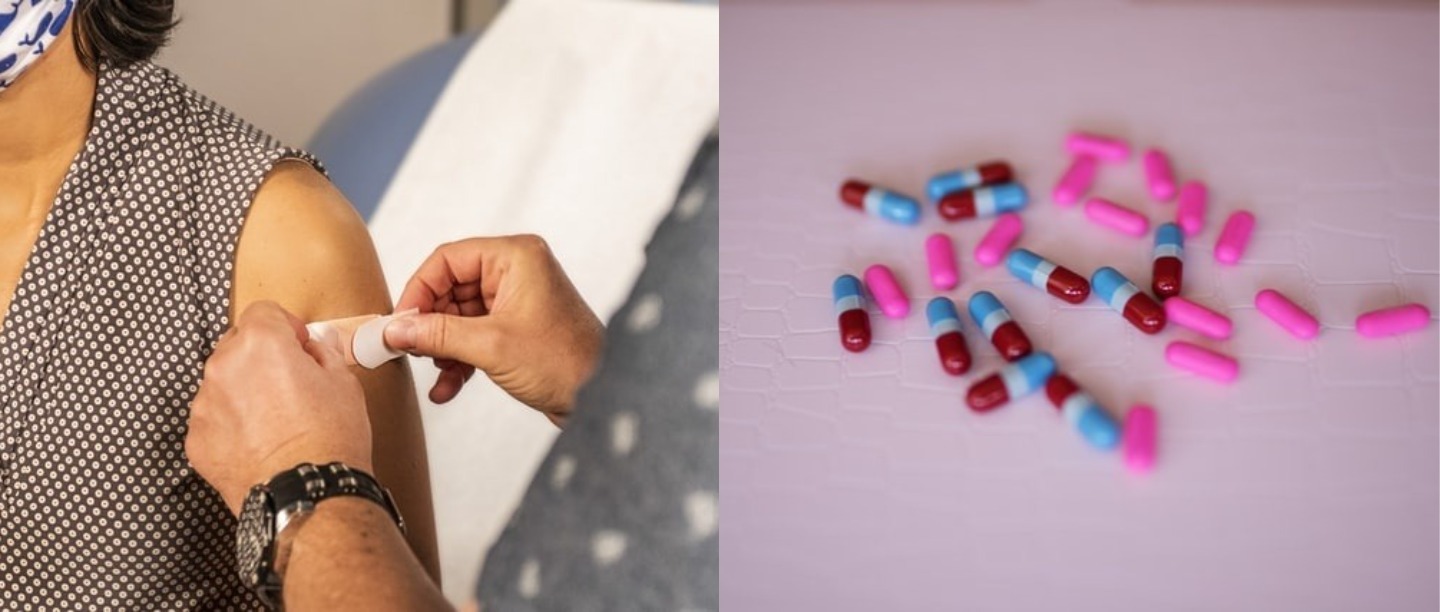
Since the beginning of the COVID-19 pandemic, all of us have both read and heard about “comorbidities” multiple times. This is mainly because experts across the world have been claiming that those with comorbid conditions are at a higher risk of severe COVID-19 infection and mortality. This again has led to panic resulting in a lot of myths and misinformation about comorbidities and COVID-19 being circulated on the internet. Additionally, there also prevails a lot of confusion around the safety of COVID-19 vaccines for people with comorbidities.
To help us with the confusion, we recently reached out to Dr. Trupti Gilada, Consultant Physician in Infectious Disease, Masina Hospital, Mumbai. She helped us understand the topic and talked about the importance of vaccination for people with comorbidities.
What Exactly Are Comorbidities?
When a person has more than one underlying health-related condition at once, they are said to have comorbidity. These are usually non-communicable diseases and can be either physical or mental. As Dr. Gilada shares, “The most common comorbid conditions in India are lifestyle diseases with diabetes being the biggest challenge with an estimated 8.7% diabetic population in the age group of 20 and 70 years.” Other common comorbidities include:
- Blood pressure
- Hypertension
- Ischaemic heart diseases
- World Diabetes Day
- Asthma
- COPD
- Kidney disease
- Cancer
Unsplash
COVID-19 And Comorbidities
COVID-19 is definitely dangerous for people with comorbidities because these are exactly the people who are very likely to get a moderate to severe disease and are more likely to be hospitalised. “Studies have shown that COVID-19 patients with comorbidities were 5 to 12-times more likely to die of Covid-19 as compared to healthy patients,” adds Dr. Gilada.
Is It Safe For People With Comorbidities To Get Vaccinated?
Currently, while India is allowing people with comorbid conditions to get the COVID-19 vaccine, many countries are just beginning to consider the option. Of course, COVID-19 is a new disease and no one knows everything about the condition yet. Amid all this confusion, can it be risky for people with comorbidities to get the vaccine?
Dr. Gilada answers, “Absolutely not. In fact, this is the population that should be vaccinated as a priority. The main benefit of the vaccine is protection from severe illnesses and death and it is, therefore, more important to vaccinate the population which is more likely to be hospitalised and die i.e. those who are elderly and with comorbidities.”
Unsplash
Do People With Comorbidities Need To Get Certain Tests Done Before Getting The Jab?
Presently, there are a lot of rumours surrounding COVID-19 and vaccination. From discouraging menstruating women from getting the jab to suggesting certain tests to people with comorbid conditions, a lot of misinformation is being circulated. However, hardly any of it holds any weight. As Dr. Gilada clarifies, “Only those who are on medications that compromise immunity (like steroids or chemotherapy) must contact their doctors to help them choose the best time to take the vaccine. For such people, the doctors may reduce the dose of their medications by a few weeks to allow maximum benefit of the vaccine. Other than that you should be fine.”
She further adds, “If people have any doubts about their comorbid condition and vaccination they must consult their physician to resolve their myths. In most cases, there are no contraindications.”
Precautions That People With Comorbidities Should Take Before Getting Vaccinated
Those with comorbidities need to do exactly what everyone else is doing before getting the vaccine. Here are some things that you should keep in mind:
-Eat well before you leave for vaccination
-Make sure that you are properly hydrated
-Monitor your health (BP, sugar, etc.) just to be safe
-Use double masks
-Practice social distancing at the vaccination centre
-Do not take the vaccine if you have any signs of a viral illness
Unsplash
Things To Keep In Mind Post Vaccination
When it comes to the COVID-19 vaccine, the most common side effects include pain at the injection site, mild headache or body ache, chills, fever, and a feeling of fatigue. This resolves very easily with paracetamol, rest, and good hydration. Here are a few things that you can keep in mind after getting the jab:
-If the vaccine side effects prolong beyond 72 hours, please contact your physician because after this period the symptoms may not be because of the vaccine
-Monitor your BP, sugar levels, or any other comorbid condition that you might have
-The vaccine immunity only develops two weeks after the second dose so you cannot afford to go lax with your safety measures after getting vaccinated.
Lastly, it is important to remember that we have to follow the COVID-19 protocol even after the vaccine has been taken. The vaccine would protect you from a serious infection but you can still be a carrier and give it to someone else. Thus, it is important that you practise social distancing and stay at home. Don’t forget your mask and sanitizer in case you have to go out.
Featured Image: Unsplash
Read More From Health
Ananya Panday On Being Called ‘Chicken Legs’ and ‘Flat Chest’ In School & Why We Must Talk About It
Isha Jain